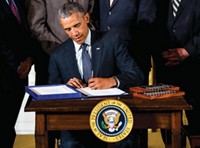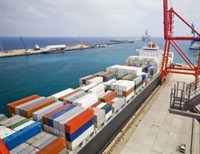Advertisement
Grab your lab coat. Let's get started
Welcome!
Welcome!
Create an account below to get 6 C&EN articles per month, receive newsletters and more - all free.
It seems this is your first time logging in online. Please enter the following information to continue.
As an ACS member you automatically get access to this site. All we need is few more details to create your reading experience.
Not you? Sign in with a different account.
Not you? Sign in with a different account.
ERROR 1
ERROR 1
ERROR 2
ERROR 2
ERROR 2
ERROR 2
ERROR 2
Password and Confirm password must match.
If you have an ACS member number, please enter it here so we can link this account to your membership. (optional)
ERROR 2
ACS values your privacy. By submitting your information, you are gaining access to C&EN and subscribing to our weekly newsletter. We use the information you provide to make your reading experience better, and we will never sell your data to third party members.
Policy
Trade Fight Looms As Key Bills Head For House And Senate Votes
Congress: Legislation would pave the way for U.S. to join trade pact with Asia-Pacific region
by Glenn Hess
May 4, 2015
| A version of this story appeared in
Volume 93, Issue 18
Congressional committees recently agreed to give President Barack Obama the authority he needs to wrap up the Trans-Pacific Partnership (TPP), the proposed free-trade pact between the U.S., Japan, and 10 other countries mostly in the Asia-Pacific region.
But the real fight over the legislation (S. 995 and H.R. 1890) will occur in the coming weeks when the controversial measure comes up for final votes in the Senate and the House of Representatives. The trade promotion bill would allow President Obama to submit the completed TPP deal to Congress for an up-or-down vote, rather than allowing lawmakers to amend it.
Without this fast-track procedure, analysts say that no trade partner will make concessions to U.S. negotiators because Congress could pick the deal apart.
The chemical industry, one of the nation’s top exporting sectors, supports both the legislation and the TPP.
“For U.S. chemical manufacturers to succeed in today’s global economy, we must be able to compete effectively in international markets,” says Michael P. Walls, vice president of regulatory and technical affairs at the American Chemistry Council, an industry trade association.
The fast-track mechanism will “help open markets and ensure the U.S. chemical industry can capitalize on its massive export potential,” Walls adds.
But the legislation faces strong opposition from the labor movement and its Democratic allies, who argue that trade agreements have caused an outflow of manufacturing jobs from the U.S. to other nations.




Join the conversation
Contact the reporter
Submit a Letter to the Editor for publication
Engage with us on Twitter